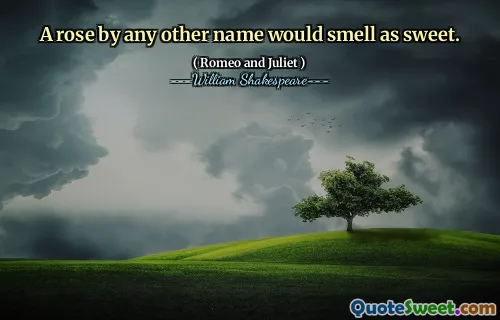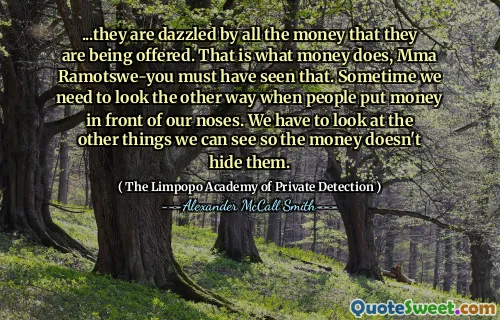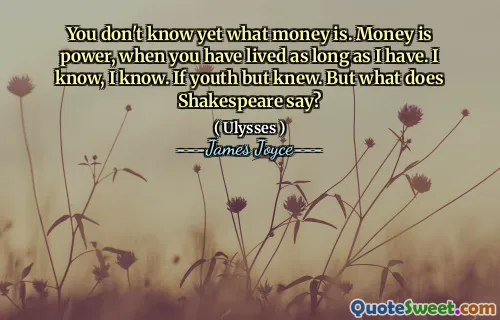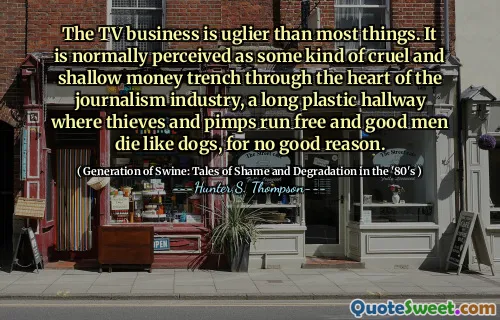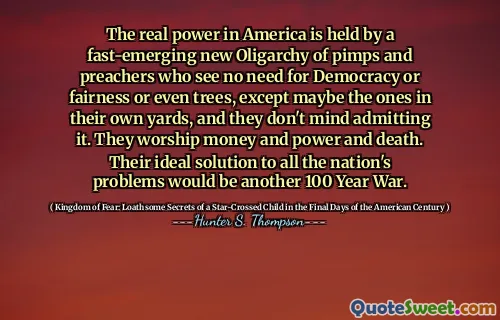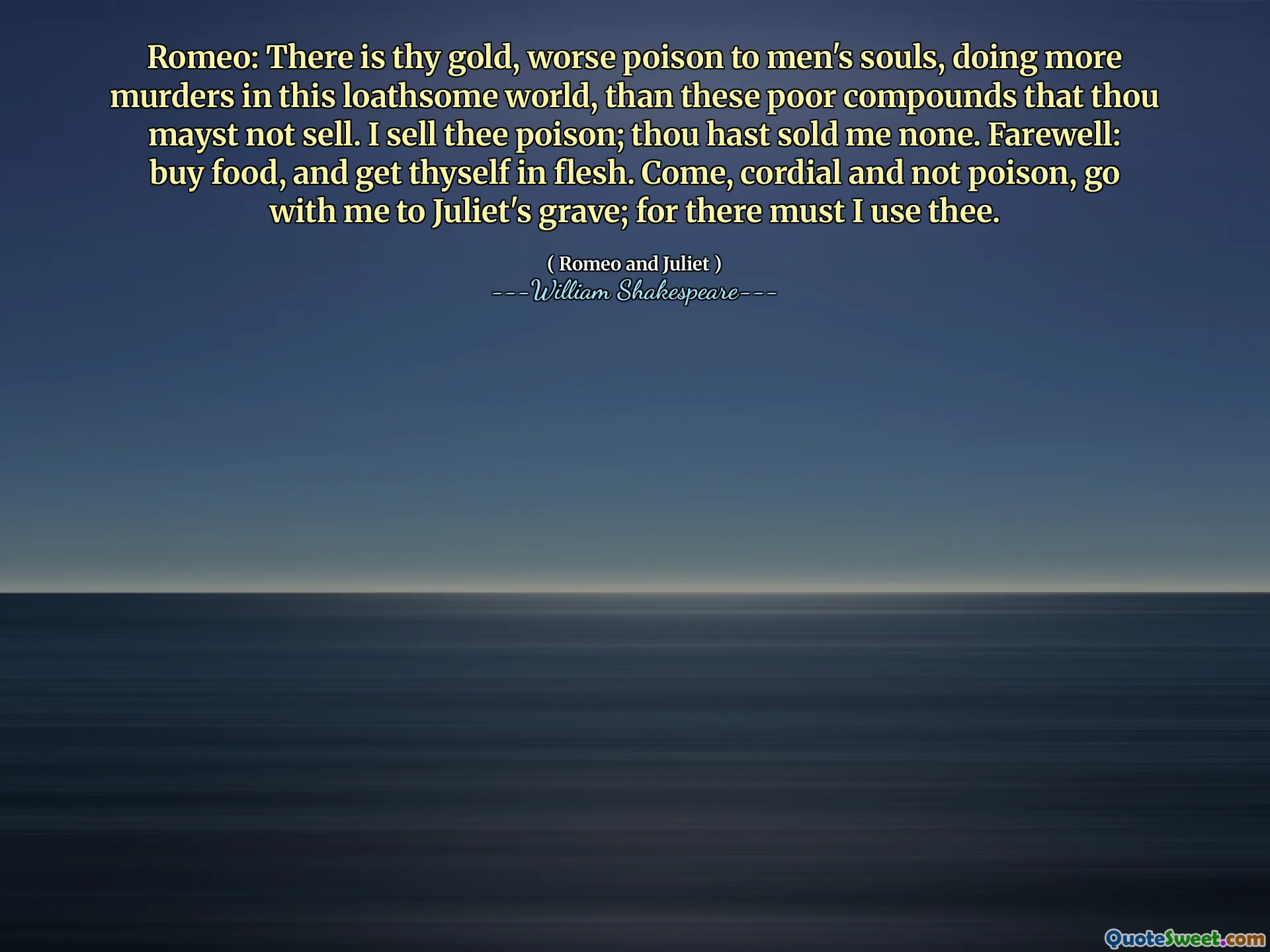
Romeo: There is thy gold, worse poison to men's souls, doing more murders in this loathsome world, than these poor compounds that thou mayst not sell. I sell thee poison; thou hast sold me none. Farewell: buy food, and get thyself in flesh. Come, cordial and not poison, go with me to Juliet's grave; for there must I use thee.
This passage from William Shakespeare's 'Romeo and Juliet' encapsulates the tragic depth of Romeo's character and the destructive nature of prejudice and misunderstanding. Romeo confronts his friend with a poignant reflection on the nature of greed and violence in their society, likening the pursuit of wealth—symbolized by gold—to a toxic force that corrupts both the moral compass and the fabric of human relationships. The metaphor of gold as 'worse poison' suggests that material greed and the obsession with wealth can be more damaging than physical dangers, leading to betrayal and murder. Romeo's decision to choose death over life with Juliet reveals his profound love and his willingness to face the ultimate consequence for being with her, emphasizing the profound tragedy of love thwarted by societal constraints. Shakespeare's language elevates emotional intensity, blending poetic beauty with despair. This scene demonstrates how external circumstances—feud, greed, misunderstanding—ultimately lead to internal turmoil, culminating in the tragic end. Romeo's rejection of poison as tangible harm versus the metaphorical 'poisoning' of the soul underscores the idea that moral corruption is often more deadly than physical violence. It reminds us that in the pursuit of superficial gains, we may overlook the profound cost to our integrity and love, leading to irreversible consequences. The lament highlights the destructive power of societal hatred and the personal sacrifice in the face of relentless tragedy, resonating across ages as a reflection on human folly and the importance of love and mercy.

